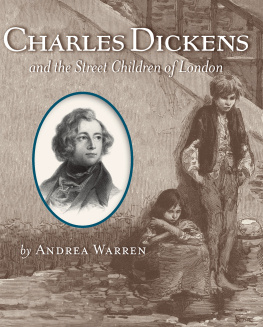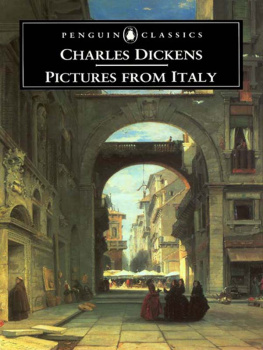Text copyright 2011 by Andrea Warren
All rights reserved. For information about permission to reproduce selections from this book, write to Permissions, Houghton Mifflin Harcourt Publishing Company, 215 Park Avenue South, New York, New York 10003.
For information about permission to reproduce selections from this book, write to Permissions, Houghton Mifflin Harcourt Publishing Company, 215 Park Avenue South, New York, New York 10003.
www.hmhco.com
Library of Congress Cataloging-in-Publication Control Number 2011003450
ISBN 978-0-547-39574-6
Photo Credits
Bridgeman Art Library:
eISBN 978-0-547-67728-6
v1.0215
For my boys, Elijah, Kaden, and Matti
C OMPASSION FOR DEPRIVED CHILDREN
WAS DOMINANT ALWAYS
IN C HARLES D ICKENS THOUGHTS AND SYMPATHIES .
Ivor Brown, Dickens in His Time
Introduction
Perhaps because I grew up in the security of a large family in a small town, I have always been sympathetic to the plight of homeless children. My desire to help led me to adopt a child orphaned by the Vietnam War. As a result, my nonfiction books for young readers have covered the topic of children orphaned by war, and also the estimated 250,000 homeless children who between 1854 and 1930 rode orphan trains across America, in search of new families.
While working in London for a few months several years ago, I became interested in how the British had dealt with homeless children in the past. In the nineteenth century, grinding poverty led to tens of thousands of abandoned and orphaned children living on the streets of both London and New York City. Today both the American and British governments have well-established programs to help the poor and unfortunate, but back then it was left largely to charitable organizations, and assistance was often hit or miss.
The orphan train movement helped many children in this country find homes, but a similar program wasnt an option in England, for most people in the upper classes would not have taken in a child from the streets or slums. The British believed back then that you were rightfully born into a certain class and you belonged there. Many gave grudgingly to charity and felt that the poorest of the poorusually childrenshould accept their lot in life.
It was the writer Charles Dickens who changed everything for these children and for the poor in general. His accomplishment was astonishing. In all his writings, he portrayed the poor so sympathetically that the upper classes were moved to begin the slow process of correcting the social ills responsible for much of the suffering of the lower classes.
In Dickens stories, ragged youngsters are always there on the fringesbegging, scrambling for work, sleeping in parks and under bridges, trying to keep body and soul together. He portrayed these children so touchingly because he had nearly become one of them. Though he was born into the middle class, through a series of family crises Dickens learned what it was like to be a hungry, powerless child who had to labor long hours for low wages. He learned that most of the poor were good, deserving people who were held down and exploited by the upper classes. He never forgot it.
Through his own hard work and in spite of little formal education, Dickens became a masterful writer. People of every class embraced his stories. The poor claimed him as their Introduction spokesman and hero. The upper classes loved him just as much. Few realized that he was subtly influencing them to take up the causes he promoted in his plots, whether it was improving the workhouses, educating slum children, bettering conditions for workers, or cleaning up the slums.
All in all, Charles Dickens was a more powerful catalyst for change than any queen, prime minister, or politician. He is known as one of historys greatest reformers.
As you read about Dickens and what he and others accomplished for Londons poorest children, I hope you will be inspired to use your own talents, whatever they are, to ease the suffering of the less fortunate all over this planet. Like Charles Dickens, you too can help make the world a better place.
Chapter 1
The Man in the Shadows
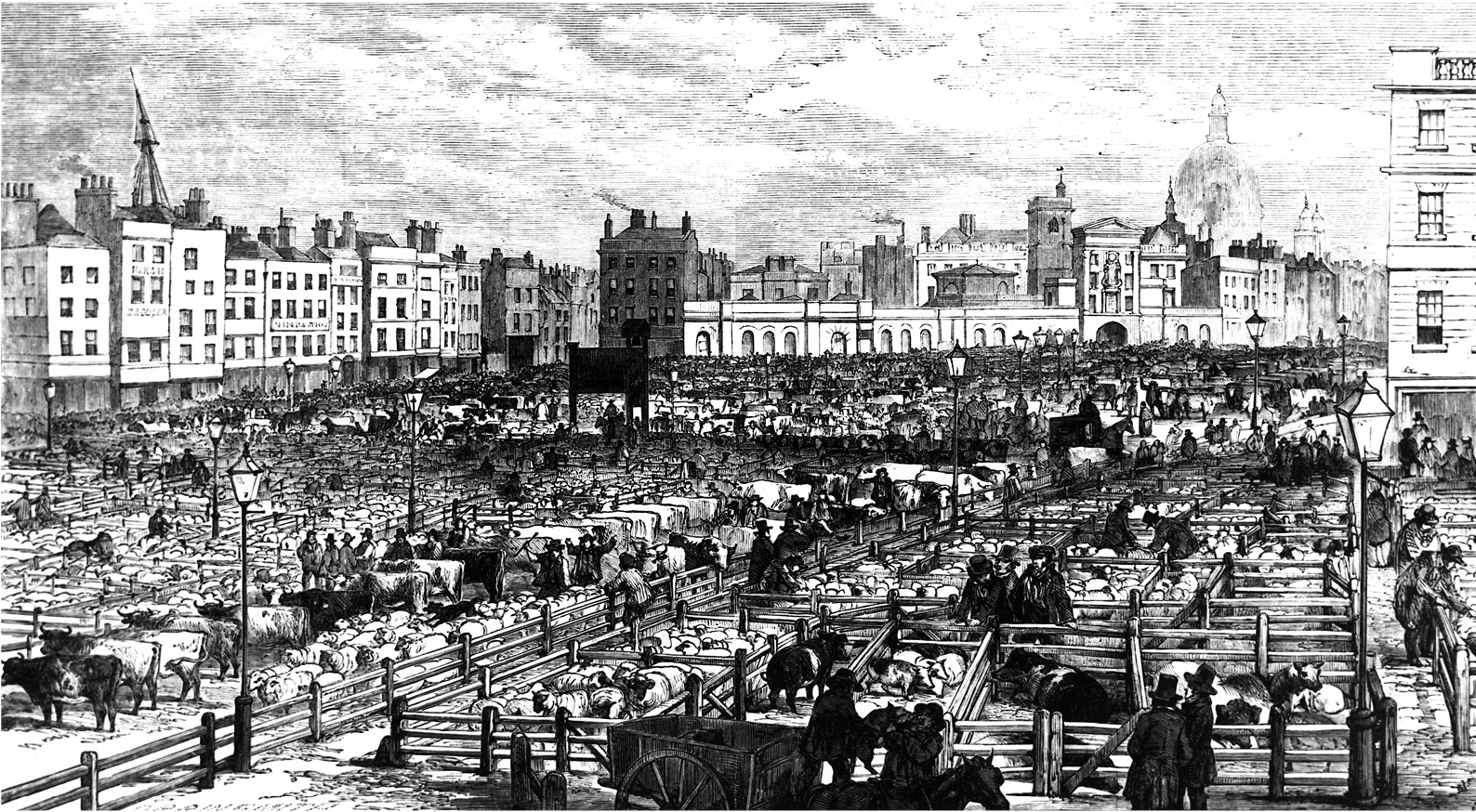
Well known to Dickens was Londons giant Smithfield Market, shown here in 1855. Dickens was critical of the markets location in the heart of the city because of its filth and noise.IN THE YEAR 1835 , London was full of energy. Every day the citys dirt and cobblestone streets filled with traffic early in the morning. Stray dogs nipped at the heels of the horses or donkeys pulling carts, carriages, and coaches that vied for space with the sheep and pigs being herded to market. People were everywhere. They roamed the street markets in search of bargains. Some visited shops or stopped into saloons to enjoy a pint of ale or glass of gin. Sidewalk gamblers lured customers into card games. Musicians, acrobats, jugglers, and actors performed, hoping for tips from passersby. Peddlers called out their offerings of fried oysters, fresh flowers, old clothes, newspapers, or meat pies. The aromas of hot coffee, grilled meat, and fried bread mixed with the odors of people, horses, tobacco, and coal tar.
Only when it began to get dark did the noise die down. The peddlers left. Tailors, butchers, and other shopkeepers locked their doors and headed for home. Soon, only taverns and eating houses were still open, adding a faint glow to the dim light provided by streetlamps. Many streets had no light, and the dozens of lanes and alleyways that threaded off them were pitch black.
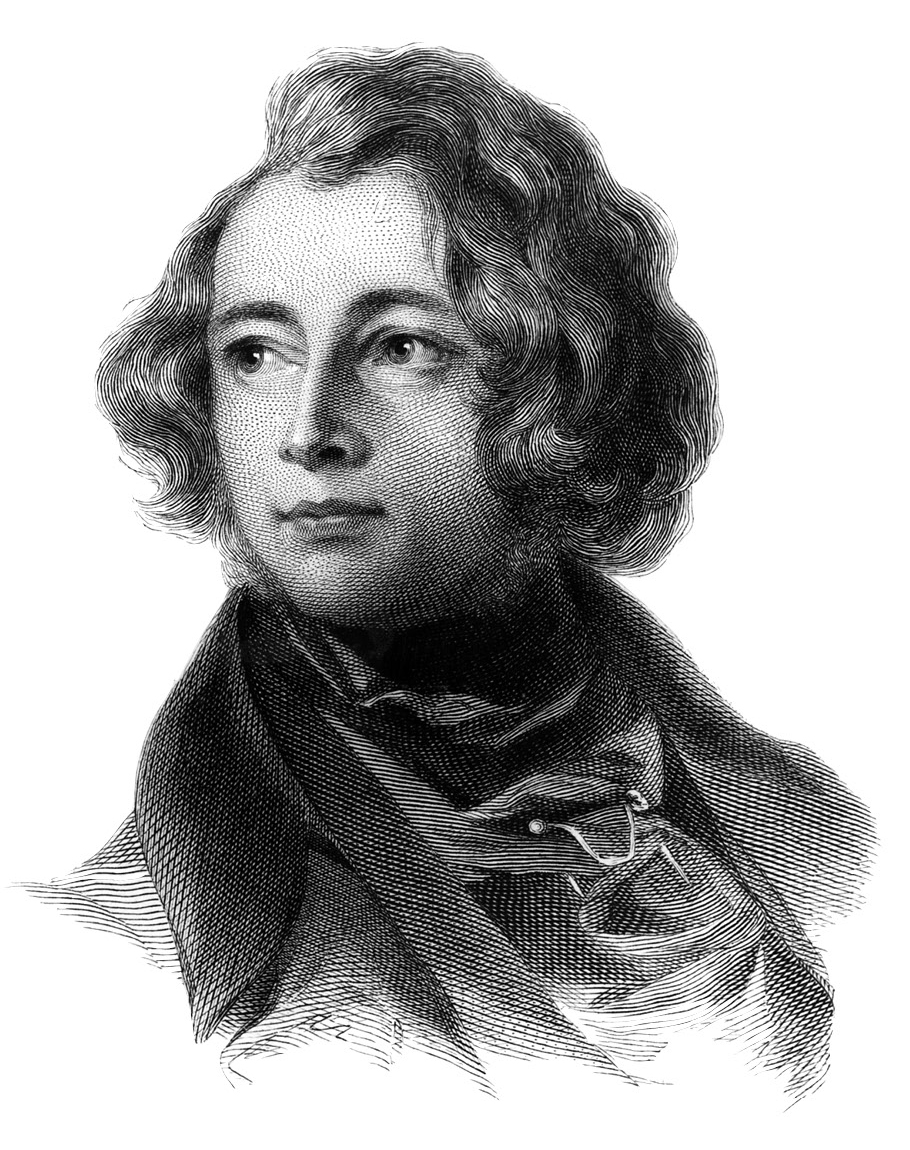
Shown here at age twenty-seven, Dickens was a careful observer of people. He had a special interest in children and put them in all of his stories.It was down these lanes and alleys that the poor lived, crowded into dingy, dirty tenements. The poorest of the poorthose who had so far managed to stay out of the despicable workhouses that were their last resortlived on the streets. Most sought out dark spots, feeling safest when they could not be seen.
A slender young man, stylishly dressed and wearing a proper coat and hat, often walked the city at night. He knew the poor were there in the shadows. Once he had been a child with nothing. His world had fallen apart when his father was arrested for debt and put in prison. He had been separated from his family and forced to work long hours in a damp, dismal warehouse to support himself. Sometimes he had been cold and hungry and so full of misery that he could not picture his own future.
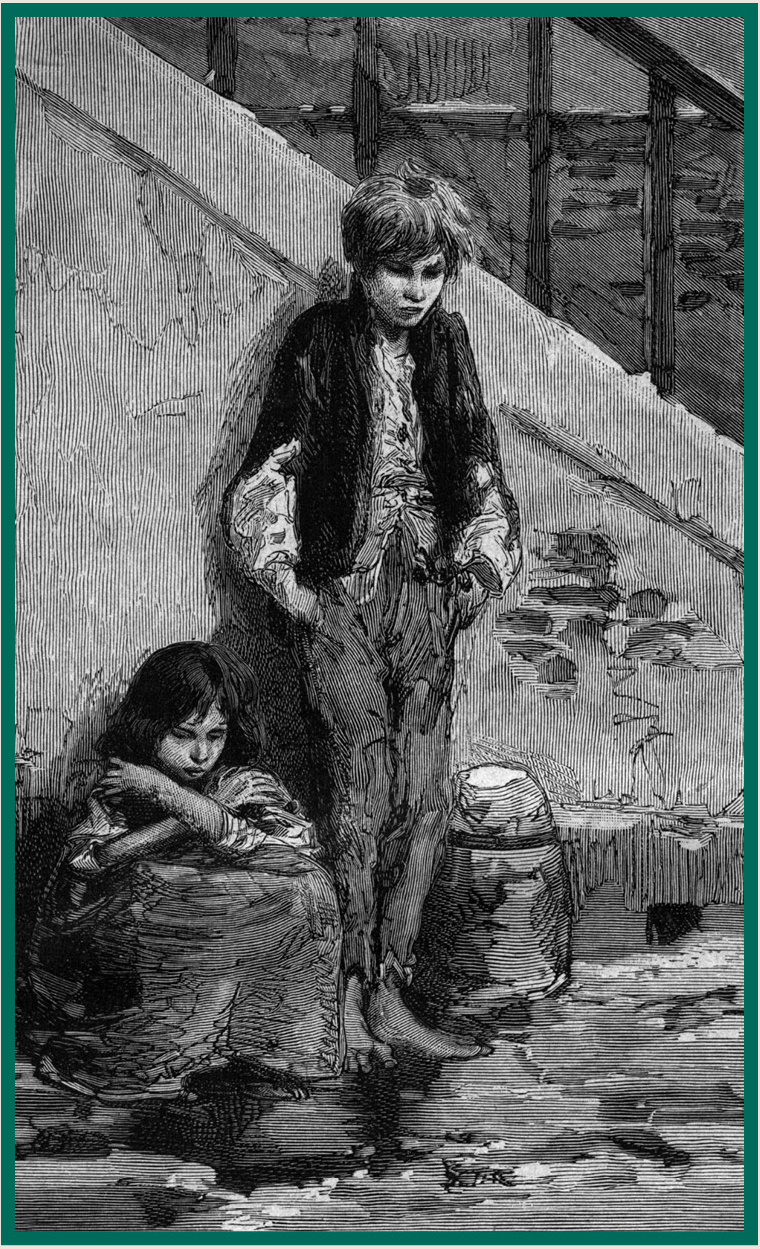
Though seemingly invisible to the upper classes, poor children were everywhere in London. Dickens was acutely aware of them and highly sensitive to their suffering.But now he walked because he enjoyed it. He moved at a brisk pace for hours at a time, thinking through problems bothering him with his work, but also paying careful attention to what was going on around him and to the people he saw. Occasionally he stopped to write in a notebook. During his late-evening walks in the poorer districts of the city, he regularly came across homeless people who were dressed in rags and huddled together for warmth. Seeing children in this condition was especially upsetting, and fueled his anger at societys indifference toward them. He vowed to use his own knowledge of wretched poverty to shame the powerful into action.
Next page
